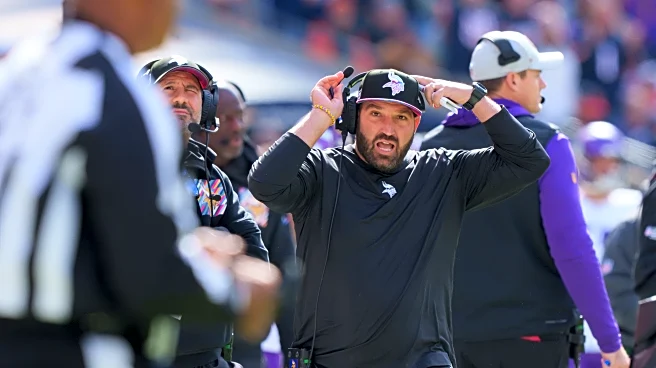What's Happening?
The ongoing government shutdown has led to significant disruptions across various federal agencies, with President Trump dismissing federal workers and furloughed staff at the Department of Health and Human Services facing permanent layoffs. The National Institutes of Health and the Centers for Disease Control and Prevention are particularly affected. Additionally, about 10% of air traffic controllers are participating in a sick-out, causing delays at airports nationwide. Sean Duffy, Secretary of Transportation, has threatened to fire those not showing up for work, labeling them as 'problem children.' The shutdown continues to impact the operations of federal agencies and the daily lives of government employees.
Why It's Important?
The government shutdown has far-reaching implications for public policy and the economy. The dismissal of federal workers and the disruption in air traffic control can lead to decreased efficiency in public services and increased travel delays, affecting both domestic and international travel. The shutdown also highlights the political tensions between the administration and Congress, with Republicans facing criticism for their handling of the situation. The longer the shutdown persists, the more it could damage the reputation of the Republican party and impact their political standing. Additionally, the furloughs and layoffs could have a lasting impact on the livelihoods of federal employees and their families.
What's Next?
As the shutdown continues, pressure is mounting on Congress to resolve the impasse and reopen the government. The situation may lead to increased political negotiations and potential compromises to end the shutdown. Stakeholders, including political leaders and civil society groups, are likely to intensify their calls for action to mitigate the impact on federal workers and public services. The resolution of the shutdown will be crucial in restoring normalcy to government operations and addressing the concerns of affected employees.
Beyond the Headlines
The shutdown raises ethical and legal questions about the treatment of federal workers and the use of political power to influence public policy. The deployment of National Guard troops and the targeting of protest organizations as terrorism highlight the administration's approach to dissent and civil unrest. These actions could lead to long-term shifts in public perception of government authority and civil liberties.











